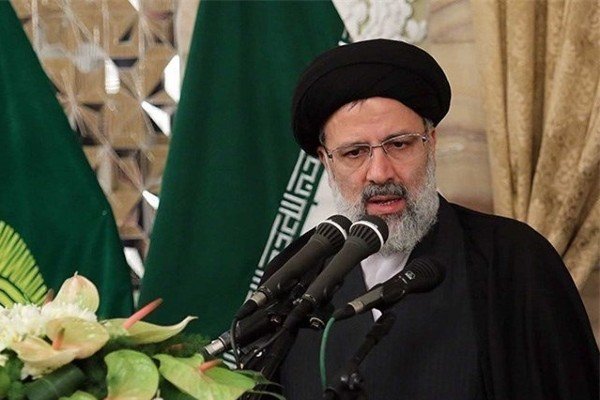
Iran is poised to pull Afghanistan into its influence and disrupt the Mideast.
Newly installed Iranian President Ebrahim Raisi celebrated the Taliban takeover of Afghanistan and the failure of the United States to leave smoothly after 20 years entrenched in the country.
This marks the beginning of what’s likely to be a more aggressive stance there and on other fronts in the Middle East.
American leaders have accused Iran of backing the Taliban in the fight against its military forces in Afghanistan. While a withdrawal was announced by the Biden administration earlier this year, what has happened over the course of the past few days was certainly not what they had in mind.
“America’s military defeat and its withdrawal must become an opportunity to restore life, security and durable peace in Afghanistan,” Raisi pronounced on Monday, according to Iran’s state TV, reported Reuters.
The complicated Iran-Taliban relationship
Iran has had a complicated relationship with Afghanistan and the Taliban.
The Shi’ite Muslim country shares a 560-mile border with mainly Sunni Muslim Afghanistan and hosts some 3.5 million Afghan refugees. In the late 1990s, Iran almost went to war with the Taliban-controlled Afghanistan after several Iranian diplomats were killed, and the Islamic Republic had cooperated with the United States early on in the invasion of Afghanistan in 2001 with intelligence support before relations deteriorated during the Bush administration.
Nevertheless, the embarrassment of the U.S. military withdrawal from Afghanistan and the swift Taliban victory over the Western-backed government represents an opportunity for Iran to take a more defiant posture against an America on the retreat from the Middle East.
“The Islamic Republic of Iran believes that the reign of the will of the wronged people of Afghanistan has always created security and stability,” said Raisi. “While consciously monitoring developments in the country, Iran is committed to neighborly relations.”
Allies Iran, Hamas and Hezbollah have all come out praising the Taliban takeover of Afghanistan. They see it as a model for defeating the United States and Israel in the Middle East.
Raisi presented a cabinet of hardliners last week, including Gen. Ahmad Vahidi as interior minister. He is a former defense minister wanted by Interpol for his alleged role in the 1994 bombing of the AMIA Jewish cultural center in Buenos Aires that killed 85 and injured hundreds.
Meir Javedanfar, a lecturer on Iranian politics at IDC Herzliya in Israel, told JNS that the new Iranian government and its composition is a message to the international community that Iran will not be so forthcoming and as during the previous term of President Hassan Rouhani. “The latter was at least more accommodating rhetorically. But those days are over,” he said.
Javedanfar sees Iran’s Supreme Leader Ayatollah Ali Khamenei as being the impetus behind the new government.
In terms of what actions can be expected from the new government, Javedanfar predicted that “you could almost call it the Khamenei government; the people now in charge can be assumed to have been appointed directly by the leader himself.”
As per the ongoing negotiations to revive the 2015 nuclear deal, he said it’s too soon to speculate if this new government signals the end of the talks. “I do think the composition of the new government means Iran is sending a tougher message to the U.S. negotiators, but an agreement might still be possible,” said Javedenfar.
The International Atomic Energy Agency stated in a report presented to members states on Monday and seen by Reuters that Iran is advancing its work with uranium metal.
“On 14 August 2021, the Agency verified … that Iran had used 257 g[rams] of uranium enriched up to 20 percent U-235 in the form of UF4 (uranium tetrafluoride) to produce 200 g[rams] of uranium metal enriched up to 20 percent U-235,” said the U.N. nuclear watchdog.
Such work is not going to help advance talks that are already at an impasse.
Iran’s aggressive policies ‘likely to continue’
Ali Alfoneh, a senior fellow at the Arab Gulf States Institute in Washington, told JNS that “the Iranian president does not necessarily represent a belligerent line, but lessons learned by the Iranian state in the past decade are likely to lead to a more confrontational approach.”
He wrote in a recent article that this aggressive approach is likely to continue due to four main lessons learned by officials in Tehran.
First, proxy wars secured military victories in Syria and Yemen. Second, Iran survived the Trump administration’s nearly four-year “maximum pressure” campaign. Third, no military retaliation came for attacks against Saudi Arabia and the United Arab Emirates. And fourth, the coronavirus pandemic has led to more government control of the country, rather than less.
Add Afghanistan to this list of countries where Iran is likely to push to increase its influence drastically after the U.S. military withdrawal.
The collapse of the Afghan military could serve as further motivation for Iran to aggressively target American-allied Gulf states such as Saudi Arabia and the United Arab Emirates, as well countries like Jordan.
(World Israel News).